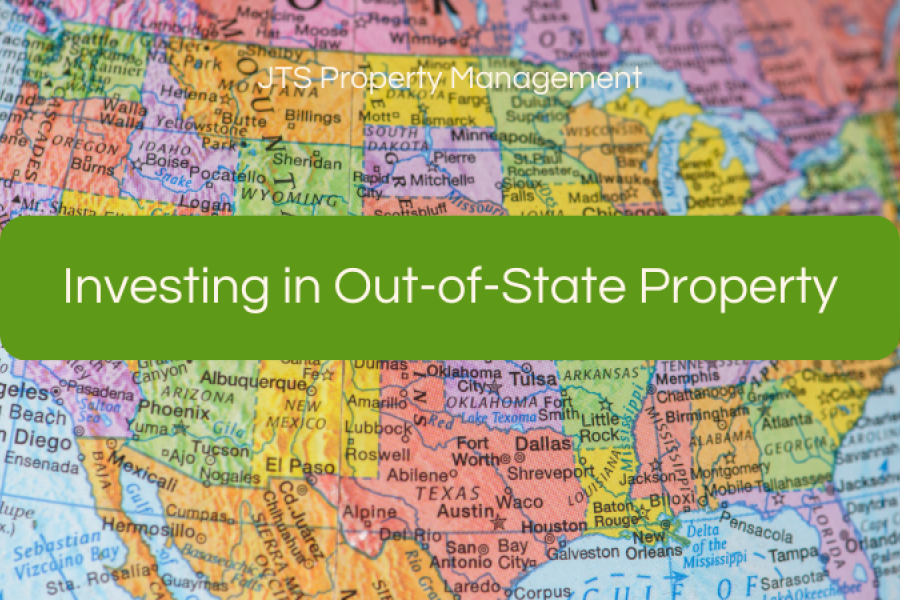Investing in real estate is a well-established strategy for building wealth and securing financial stability. Traditionally, investors have focused on properties within their local market, where they are familiar with the trends, regulations, and overall dynamics of the area.
However, as the real estate landscape continues to evolve and investors seek greater diversification, the concept of investing in out-of-state properties has gained significant traction.
This guide aims to provide a comprehensive overview of the key aspects associated with investing in out-of-state property.
Why Invest in Out-Of-State Property?
While the decision to pursue out-of-state investments may not be suitable for everyone, there are key reasons why individuals choose to explore opportunities in different regions.
Portfolio Diversification
Purchasing an investment property out of state allows for geographic diversification, reducing the impact of local economic downturns on your overall portfolio. A diversified real estate portfolio can provide a more resilient and stable investment strategy.
Market Opportunities
Some regions may present more attractive investment opportunities due to factors such as job growth, population influx, and overall economic development. Investing in areas with strong market fundamentals can lead to higher potential returns.
Risk Mitigation
Spreading investments across different states can mitigate risks associated with localized economic challenges, natural disasters, or other unforeseen events. A diverse portfolio is less susceptible to the negative impacts that may affect a single market.
Better Returns and Cash Flow
Certain areas offer more favorable conditions for rental income, property appreciation, or both. Out-of-state properties provide better returns on investment and stronger cash flow compared to their local markets.

Tax Advantages
Some states have more favorable tax environments for real estate investors, offering potential tax advantages such as lower property taxes or no state income tax. Exploring these opportunities can enhance the overall profitability of an investment.
Access to High-Growth Markets
Investing in states with robust job markets and growing industries can position investors to capitalize on high-demand rental markets. Cities experiencing economic expansion often attract a steady influx of tenants, contributing to increased property values and rental income.
Common Challenges Faced By Out of State Investors
Investing in properties out-of-state offers numerous benefits, but it also comes with a set of unique challenges that investors must navigate. Being aware of these challenges allows investors to develop effective strategies to mitigate risks and ensure the success of their out-of-state real estate ventures.
Limited Local Knowledge
A lack of familiarity with local market dynamics, neighborhoods, and regulations can pose a significant challenge. Investors may struggle to make informed decisions without a deep understanding of the specific characteristics of the area.
Distance and Travel Costs
The physical distance between the investor's primary residence and the out-of-state property can lead to increased travel costs. Regular visits may be necessary for property inspections, meetings with property managers, or addressing unforeseen issues.
Limited Control and Oversight
Managing and overseeing a property from a distance can be challenging. Investors may struggle to address issues promptly, leading to potential delays in maintenance, repairs, or handling tenant-related matters.

Market Fluctuations and Economic Risks
Economic conditions can vary widely between states, and unforeseen economic downturns or market fluctuations can impact property values and rental markets. Out-of-state investors may face challenges in predicting and responding to these changes.
Regulatory and Legal Differences
Each state has its own set of real estate laws and regulations. For each state an investor invests in, they must educate themselves on local laws regarding property transactions, landlord-tenant relationships, and other legal matters to ensure compliance and avoid potential issues.
Communication Challenges
Communication issues may arise due to time zone differences and the physical distance between the investor and the property. Timely communication with tenants, property managers, and other local stakeholders becomes more challenging.
Tips for Out-Of-State Property Investors
Here are some tips for out-of-state property investors to enhance their chances of success.
Thorough Research
Conduct extensive research on the target market. Understand local economic trends, job markets, population growth, and the overall real estate landscape. Utilize online resources, local news, and reports to gather relevant information.
Visit the Area
Whenever possible, visit the location of the prospective investment. Walk through neighborhoods, assess local amenities, and get a feel for the community. This firsthand experience can provide valuable insights that might not be apparent from a distance.

Build a Local Network
Establish relationships with local real estate agents, property managers, contractors, and other professionals. A reliable local network can provide essential support, local market knowledge, and assistance in managing the property effectively.
Leverage Technology
Use technology to your advantage. Virtual tours, online property management tools, and video conferencing can help bridge the gap created by distance. Stay connected with local stakeholders and monitor property performance remotely.
Choose the Right Property Management
Select a reputable and experienced property management company. A reliable property manager can handle day-to-day operations, tenant relations, and maintenance, ensuring the property is well-maintained and profitable while you’re away.
Regular Property Inspections
Schedule regular property inspections, even if it means coordinating visits or hiring a local inspector. Identifying and addressing maintenance issues promptly can prevent small problems from escalating into larger, more costly ones.
Stay Informed
Stay updated on local market trends, changes in regulations, and economic developments. Attend local real estate conferences, join online forums, and subscribe to newsletters to stay informed about the market where you have invested.
Establish Clear Communication
Clearly communicate expectations with your local team, including property managers and tenants. Use technology to facilitate effective communication and establish a reliable communication protocol to address issues promptly.
Bottom Line
Investing in out-of-state property represents a dynamic avenue for diversifying real estate portfolios and unlocking unique opportunities. While this approach offers the potential for increased returns and reduced risk through geographic diversification, it also demands a thorough understanding of the challenges involved.
Building strong relationships with property managers for effective property management and navigating local regulations. Trust your assets with JTS Property Management. Explore new horizons, maximize returns, and let us handle the details.


